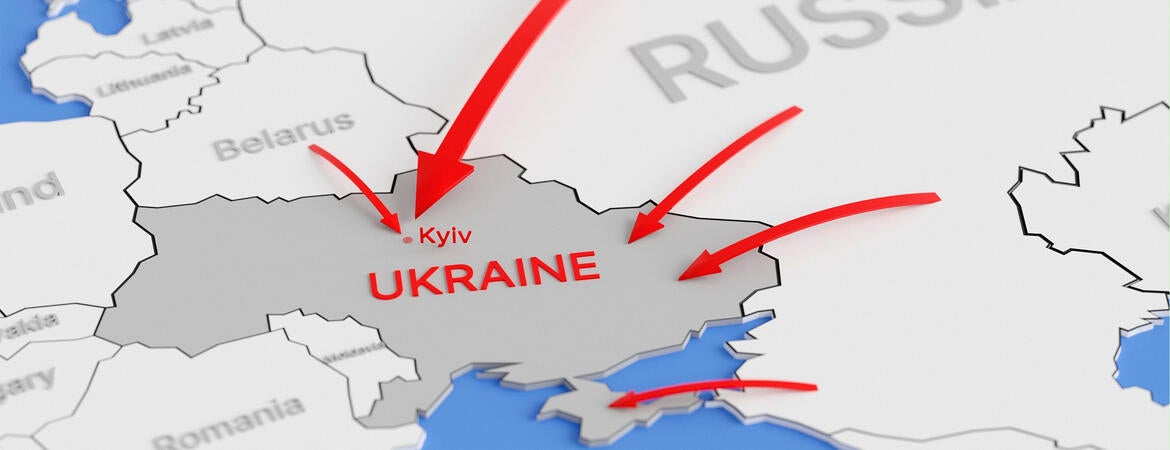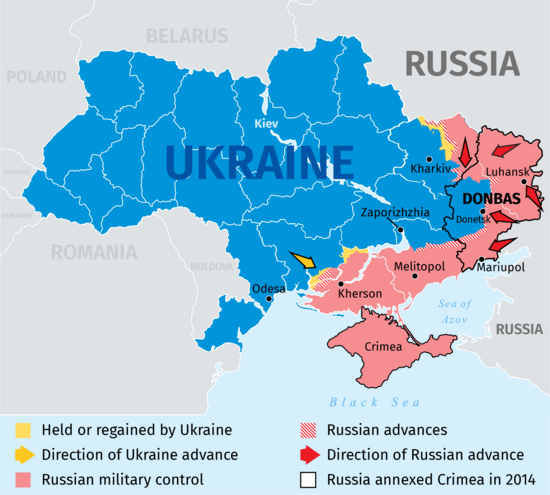
NATO member countries have walked a line in the months since Russia invaded Ukraine: Supporting Ukraine short of triggering large-scale war with Russia. That line may soon become more difficult to navigate, with Russia now threatening a member of NATO. We asked UCR political scientist and NATO expert Kelechi Kalu to assess Russia's current calculus in Ukraine.
Q: As part of its response to EU sanctions, Lithuania halted the transport of some goods through its territory to the Russian region of Kaliningrad. The Kremlin warns it will retaliate against the sanctions in a manner that will have a "significant negative impact" on the Lithuanian people. Article 5 of the NATO alliance’s treaty holds that any attack on a NATO country is an attack on all NATO countries, and commands a military response by the alliance. Lithuania is a NATO country. Is NATO defense of Lithuania a certainty if Russia moves against the country?
Kelechi: In response to the EU’s sanctions, Kremlin’s threat against Lithuania is an indication that Russia is experiencing increasing economic, financial, and military pressures resulting from its war against Ukraine.
Yes, Article 5 of the NATO alliance requires it to protect its members if militarily attacked by a non-member state. Thus, Russia’s preferred response to Lithuania’s
halting of the transport of goods through its territory to the Russian region of Kaliningrad will determine NATO’s action consistent with its common defense pact with Lithuania.
If Russia’s response is purely economic, (it may opt for) unverifiable cyberattacks or other forms of response that cannot be tied directly to military action by Russia. (Under that scenario) it will be difficult for NATO to trigger Article 5 of its charter.
Q: Russian warships are blocking Ukrainian trade in the Black Sea, restricting Ukraine’s grain trade and leading to fears of famine. Is it possible that NATO’s impetus for greater involvement in the war will be to break the blockade under the premise of a humanitarian effort?
Kelechi: Russia’s war in Ukraine is nothing short of an imperial expansion by Vladimir Putin. He is clear-headed on his actions in Ukraine and it is not really in response to NATO’s expansion but indicative of a need to regain lost imperial glory for Russia. Therefore, Putin understands that blocking Ukrainian trade in the Black Sea will choke off economic and military life-lines for Ukraine.
However, he fails to appreciate how nationalism can lead people, like Ukrainians, to die in defense of their fatherland. Similarly, NATO decision-makers are fully aware that an economic blockade is a declaration of war. Thus, unless NATO is willing to call Vladimir Putin’s nuclear weapon’s bluff, greater involvement that includes breaking the blockade in the Black Sea is a dangerous proposition that will prolong the war, the suffering of ordinary Ukrainians, and very likely, the use of a nuclear weapon in the war for the second time in history.
I sense that (anti-blockade actions by) individual members of NATO, e.g., Turkey seizing a Russian-flagged ship transporting tons of grain from the Russian-controlled region of Ukraine, will not be seen as coordinated by NATO. (So) to break the blockade, individual NATO members are likely to flag vessels in and out of the Black Sea to transport wheat and other grain from Ukraine to destination markets.




